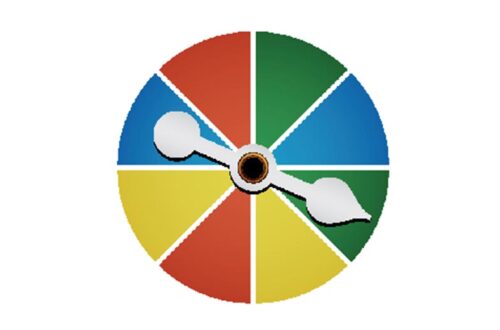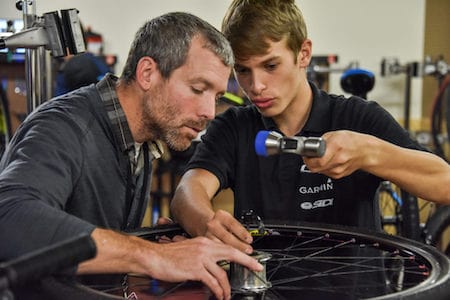Healthy Screen Time Habits
by Nicole M. Young, MSW
My family had one TV but no video games, Beta Max player, or VCR when I was young. When we weren’t doing chores, my siblings and I spent hours reading books, playing games, dancing to records, and building forts—always with lots of teasing, bickering, and laughter. Sometimes I wished my family could be more like my friends’ with fewer TV restrictions and more cool gadgets, but my younger self didn’t know I’d have plenty of time to get hooked on screens as an adult. Now, I’m thrilled when my kids—who don’t know life without screens—initiate a conversation, a family game night, or anything that doesn’t involve staring at a screen. We will always be a screen-loving family, but finding a healthy balance is a worthy goal.
This monthly column provides tips for anyone helping raise children, based on the world-renowned Triple P – Positive Parenting Program, available to families in Santa Cruz County. If you have a question or idea for a future column, email me at triplep@first5scc.org.
Dear Nicole,
Screen time helped my kids (14, 16) get through the pandemic. Texting, social media, and watching movies helped them stay connected to friends and preventing boredom. But now they’re on their devices all the time and we want to reinstate some limits. We’re worried they’ll think we’re being unfair or too restrictive. How can we bring up this topic with them?
-Victor
Dear Victor,
You’re not alone! Parents and caregivers often have difficulty setting and following through on screen time limits. Still, it’s essential to teach children and teens to use screens (social media, video games, movies, etc.) in healthy, responsible ways. This leads them to self-regulation skills and prepares them for responsibilities later in life. Here are some tips to try:
Talk with your teens
Have a family meeting about screen time. Acknowledge that you’ve been lenient about screen time rules because of the pandemic. Let them know that was temporary, and now you’d like to create family agreements that provide a healthier balance.
Understand their screen time habits
Before discussing limits, ask questions to understand your teens’ screen time habits better. Remember that screen time isn’t always or is automatically harmful. For instance, watching a movie can be enjoyable and provide a break from schoolwork or other challenging tasks. And using technology to read, play active games or exercise, connect with peers, or create art, music, or videos can be beneficial and even help kids develop valuable skills for school and future jobs. But too much screen time can contribute to physical health problems (headaches, lack of sleep) and mental health concerns (depression, anxiety), especially if it increases social isolation, decreases physical activity, or exposes kids to bullying or other inappropriate content.
Develop family agreements for screen time
Keep them realistic and straightforward. Consider setting weekly (versus daily) screen time limits, defining types of content or activities that are acceptable versus off-limits, and agreeing on rules about when and where screens can be used (e.g., “Put away phones while we eat,” or “Turn devices off by 10 p.m.”). Involve your teens in defining these agreements, how they will follow them, and what will happen if they ignore the rules. Remember that logical consequences, such as temporarily removing screen time privileges, are a teaching tool versus a punishment. Emphasize that the more your teens take responsibility for following the family agreements, the less you have to intervene to enforce the rules. Then focus on setting a good example with your screen time habits.
Identify other interesting activities
Find out what sports, art, music, and other activities are available (and COVID-safe) at school or in the community. Encourage your kids to pick a non-screen activity they’re interested in, and that will fit your family’s schedule and budget. It could be an activity they do alone, together, or even as a family.
Encourage behavior you want to see more of. When your kids do other activities or follow the family agreements on their own, show interest and give your attention. It can be as simple as asking, “What music are you listening to?” or saying, “Thanks for putting away your phones. I really enjoy our dinnertime conversations.” This helps shift everyone’s attention to the things your teens are doing well instead of things you wish they would stop doing.
FINAL THOUGHTS
Teaching kids about healthy screen time limits is one way to help them become confident, competent individuals. And who knows…parents and caregivers could benefit, too!
Nicole Young is the mother of two children, ages 18 and 21, who also manages Santa Cruz County’s Triple P – Positive Parenting Program, the world’s leading positive parenting program. Scientifically proven, Triple P is made available locally by First 5 Santa Cruz County, the Santa Cruz County Health Services Agency (Mental Health Services Act) and the Santa Cruz County Human Services Department. To find a Triple P parenting class or practitioner, visit http://triplep.first5scc.org, http://www.facebook.com/triplepscc or contact First 5 Santa Cruz County at 465-2217 or triplep@first5scc.org.








